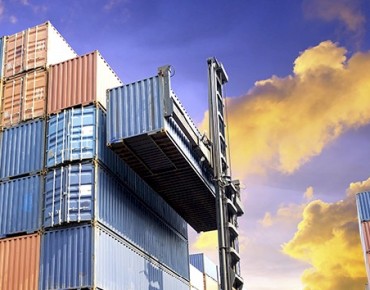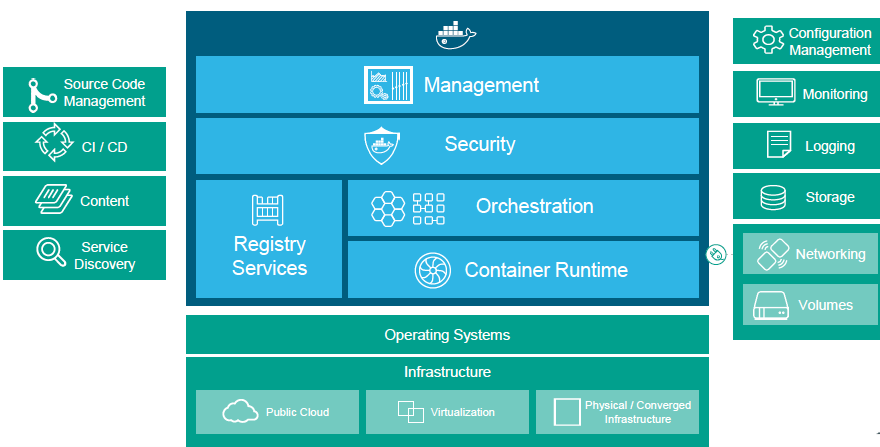Docker Platform Preps Containers for Production

Directly addressing concerns about its readiness for production, application container leader Docker is rolling out "container-as-a-service" platform designed to ease application development and management at scale.
The Docker Datacenter unveiled Tuesday (Feb. 23) seeks to combine the inherent agility of application containers with greater control and security as enterprises attempt to scale container technology. Aiming to deliver on its "build, ship and run" mantra, the new container service is a "metaphor for pulling everything together" as container technology moves to production, according to Scott Johnston, Docker's senior vice president of product management.
Docker's holistic approach includes a control plane that can be used in the datacenter or in a private cloud along with the company's trusted registry and lightweight runtime. As an example of container agility, Johnston noted in an interview that the new service could help reduce the time needed to push an application change to production from weeks to as little as a day.
The company noted that the integration of commercial software such as the container service's control plane and trusted registry with open source projects like Docker Engine has been "tested and validated with enterprise-class support." Among the beta customers for Docker Datacenter is the payroll giant Automatic Data Processing (NASDAQ: ADP).
Johnston noted that ADP embraced application micro-services "whole hog" as it sought to upgrade legacy infrastructure while addressing growing redundancy and cost in its development and delivery of applications. The company adopted the container service's repository of "app templates" for common services as a way to speed the movement of applications from development to production. Those applications run on the Amazon Web Services (NASDAQ: AMZN) public cloud and its OpenStack private cloud.
Along with agility and portability, Docker also is addressing lingering container security concerns with upgraded control capabilities. It is augmenting earlier security measures like a trusted registry for images with a control plane that is billed as providing centralized management of images, applications and infrastructure. Another security feature is an image signing and verification capability as content moves from development to production.
A "content trust" feature signs images with digital keys, then verifies the signature of those images, Docker said.

Source: Docker
In a testimonial, ADP CTO Keith Fulton noted: "A key feature for us is the end-to-end integration with Docker Content Trust to centrally administer and control our images so that only signed and validated content can be used or deployed into a production environment."
Application container technology has emerged as a micro-services paradigm over the least several years. Docker's container service addresses "what enterprises have been asking for in the last 18 months" to move the technology to production, Johnson noted.
As more Fortune 500 companies integrate micro-services with legacy IT infrastructure, San Francisco-based Docker also emphasized the steady shifting of workloads from datacenters to the cloud. The company said its container service gives developers a self-service capability to build and launch applications across datacenters or public cloud infrastructure.
Meanwhile, the container leader is beginning to target mid-sized enterprises seeking to upgrade and scale their application infrastructure. Among the benefits, according to DevOps manager with an Australian healthcare advisor, is less time spent on IT operations management and more time on application development.
Docker said it is releasing its container service on a subscription basis. Pricing information is available here.
A Docker Datacenter webinar is scheduled for March 1.
Related
George Leopold has written about science and technology for more than 30 years, focusing on electronics and aerospace technology. He previously served as executive editor of Electronic Engineering Times. Leopold is the author of "Calculated Risk: The Supersonic Life and Times of Gus Grissom" (Purdue University Press, 2016).











